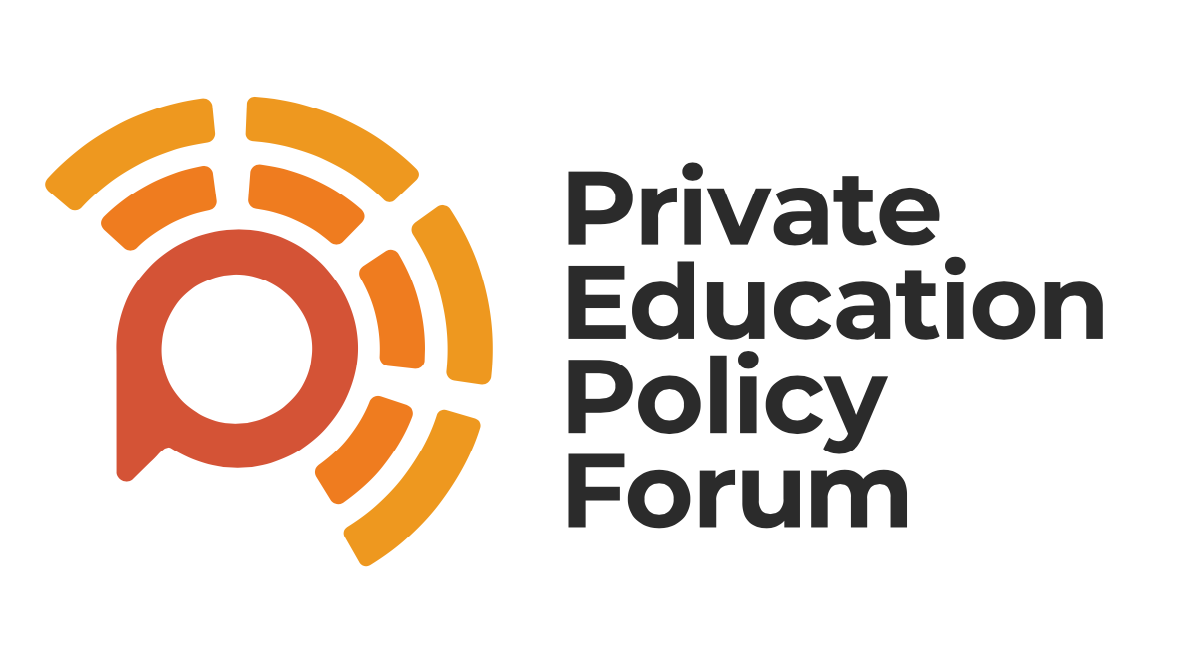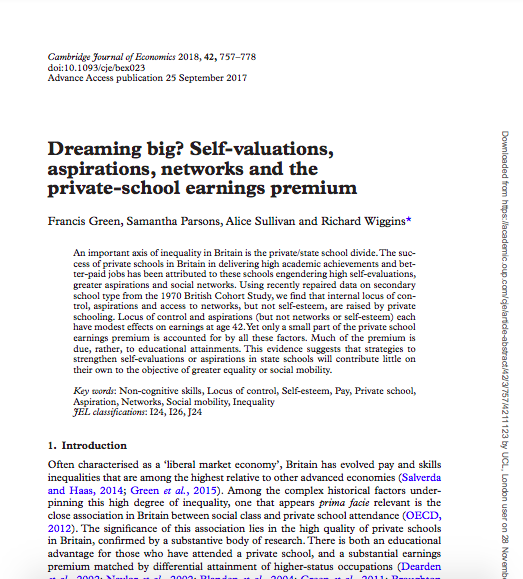

Title:
“Dreaming Big? Self-Evaluations, Aspirations, Valued Social Networks, and the Private School Earnings Premium in the UK”
Authors:
Green, F., S. Parsons, A. Sullivan and R. Wiggins (2018). Cambridge Journal of Economics. 42 (3), 757-778.
WHAT’S IT ABOUT?
Why do those who have been to private school in Britain earn more?
It is sometimes claimed that this advantage is due to the pupils’ attitudes and aspirations: that private school alumni are taught “dream big” – to become more confident and aspirational than their state school counterparts.
This paper studied two main questions: 1) does private schooling affect pupils’ confidence and aspirations; 2) if so, is this what gives them the edge in the labour market?
METHODOLOGY
The study used data from the British Cohort Study, which surveyed all children born in a single week in 1970, who were at secondary school in 1986.
These were re-interviewed every few years, including when they were 42 in 2012. Using validated scales, the researchers examined two attitudes at ages 10 and 16.
First, their “self-esteem” and “locus of control” (the extent to which people feel that life events are under their own control, rather than chance) at age 10. Second, their job aspirations at age 16.
WHAT ARE THE FINDINGS?
First, the study confirmed that, at age 42, private school males earned 34 per cent more than similar males educated at a state school at age 16. For females the premium was less but still significant: 21 per cent.
The study also found:
- Private schooling does not raise pupils’ self-esteem. Rather, with their more affluent socio-economic background, they already had higher self-esteem when they started their schooling.
- However, private schooling does raise pupils’ locus of control, when compared with similarly qualified children at state schools.
- At age 16, it also engenders aspirations for higher status jobs. These effects were particularly strong for those who attended one of the “top” schools regularly reviewed by the Tatler magazine.
- A higher locus of control, and being more aspirational for a higher status job, are each associated with having higher earnings at age 42.
- However, only a relatively small part of the private school earnings premium at age 42 is associated with locus of control, aspirations or self-esteem.
- Especially in the case of females, much of the premium is associated with their educational qualifications – including whether their degree is from an elite university, and the degree subject.
The findings imply that any policy that might improve the self-esteem, locus of control and aspirations of state school pupils would be unlikely to reduce the advantage gained by private school pupils in their resource-rich environment.
WHAT ARE THE LIMITATIONS OF THIS RESEARCH?
This research applied to those now in the second half of their careers. The role of confidence and aspirations could have become more or less important for those educated in the 21st century.
The study found no role for social networks and connections; but it is likely that its measure of access to social networks for gaining jobs was too imprecise.
Other, unmeasured attitudes – such as “psychological entitlement” – might play a larger role than locus of control or self-esteem in explaining the private school earnings advantage.
Explained by: Francis Green, Professor of Work and Education Economics at UCL Institute of Education.




